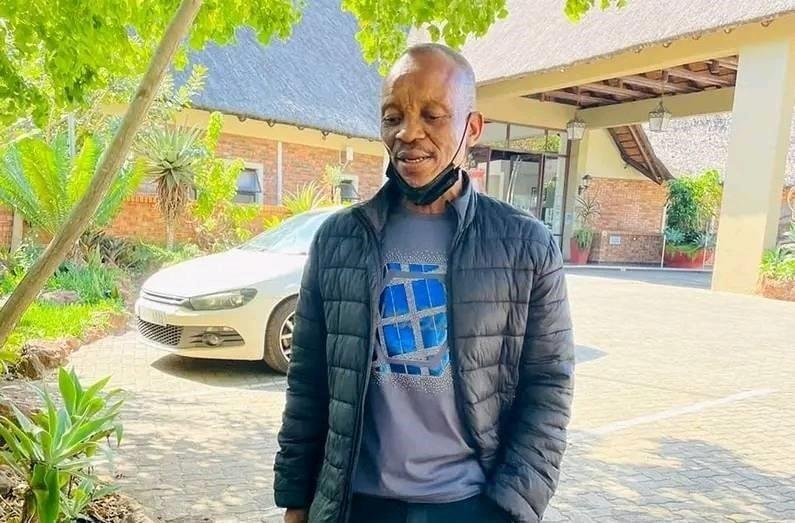Africa-Press – South-Africa. Four years after the release of the Moerane Commission report into political killings in KwaZulu-Natal, crimes against politicians, izinduna (Zulu regiments and traditional leaders) and public officials continue unabated.
In the most recent case, AmaZulu Prince Mbongiseni Milton Muntukaphiwana Zulu was gunned down alongside his bodyguard last week.
Known as intelligent, even-tempered and a warm personality who was the voice of reason in KwaZulu-Natal’s tricky political landscape and a close confidant of King Misuzulu KaZwelithini, Prince Mbongiseni’s death has been labelled a great loss of leadership in the province.
Premier Nomusa Dube-Ncube highlighted that this was not the first killing in the royal court in 2022.
Prior to Prince Mbongiseni’s murder, Dr Dumisani Blasius Khumalo also a close confidant of King Misuzulu was killed in his driveway, shortly after attending the Reed Dance in September.
The government also paid its respects to the family of Maphumulo ward 11 councillor, Zakhele Khuzwayo, who was shot dead in the same week as Khumalo.
And on 8 September, two ward councillors in the Msinga Local Municipality were attacked by gunmen who opened fire on the vehicle they were travelling in. In that incident, councillor Siyanda Magubane succumbed to his injuries.
Just a few days later, ward 99 councillor in eThekwini, Mnqobi Molefe, was also gunned down, allegedly by two police officers.
The officers, Mayendran Chetty and Vincent Phelago, based at the Umkomaas police station south of Durban have made two court appearances in relation to the murder, and a charge of conspiracy to commit murder.
Security expert weighs in
Shedding light on political killings, independent violence monitor and academic, Mary de Haas, said the reason murders continue unabated is because killing in KZN had become “so easy”.
She said:
One of the main issues, De Haas said was hitmen who emerge from the taxi industry.
“The taxi industry is huge and not regulated. There need to be checks for the security companies they employ and the guns they have.
De Haas said she knows of a taxi owner in Inanda who had his security company shut down, but he is running another one again.
“Why isn’t he being stopped? Is anyone going around and performing these checks? The answer is no,” she stressed.
De Haas warned that it had become easy to acquire a hitman in SA, largely because crime intelligence does not function properly, making it difficult to pinpoint where to find hitmen.
She said:
Guns and ammunition were also not properly regulated, she said.
“If you look at these political killings, some of these victims have dozens of bullets pumped into their bodies. How easy is it to get ammunition? There just isn’t enough regulation.”
Hitmen also have access to unregistered SIM cards, De Haas said.
“So, they can easily conduct their business of killing, and then disappear in a taxi to, say, Gauteng. I have come across many cases where a detective will tell me that they are chasing down a suspect who committed a crime in KZN, but is now in Gauteng.”
She said the task team on political killings established by Minister of Police Bheki Cele was also irregular and had found few convictions since it was established.
“How can you have a minister running a task team? It does not sit right. A minister whose own long-standing political colleagues may be gaining from this task team.”
She added:
The stats
In the 25th issue of the Risk Bulletin of Illicit Economies in East and Southern Africa released in June, the Global Initiative Against Transnational Organised Crime (GI-TOC) labelled KwaZulu-Natal the home of assassinations.
Through an analysis of public and media reporting from 2000–2021, Global Initiative compiled a database of 1 971 assassination cases in South Africa.
For three of the last six years, political assassinations in KwaZulu-Natal were as high or higher than all the other South African provinces combined, according to the GI-TOC’s assassination monitoring data.
KwaZulu-Natal also stood out among provinces for having the highest frequency of politically-linked assassinations.
Of the 418 political hits recorded nationwide between 2000 and 2021, 213 took place in the last seven years, and of that number, 118 were in KZN.
Moerane Commission report
Two years after beginning its investigations into political killings, the Moerane Commission report was released, pointing to several systemic issues in KZN, calling for political reform.
But four years since its release into the public space in September 2018, not much has changed.
The 400-page report contained interviews with more than 60 witnesses.
Poor leadership in political parties was a key factor mentioned in the report.
It stated that weak leadership led to factionalism and intolerance within and between parties.
“[This] in turn, results in violent conflict, often resulting in the murder of political functionaries. It is therefore recommended that political parties build a strong membership base that is rooted in democratic values.”
Four years later, factionalism has grown with a distinct split of members in the ruling party.
For More News And Analysis About South-Africa Follow Africa-Press






